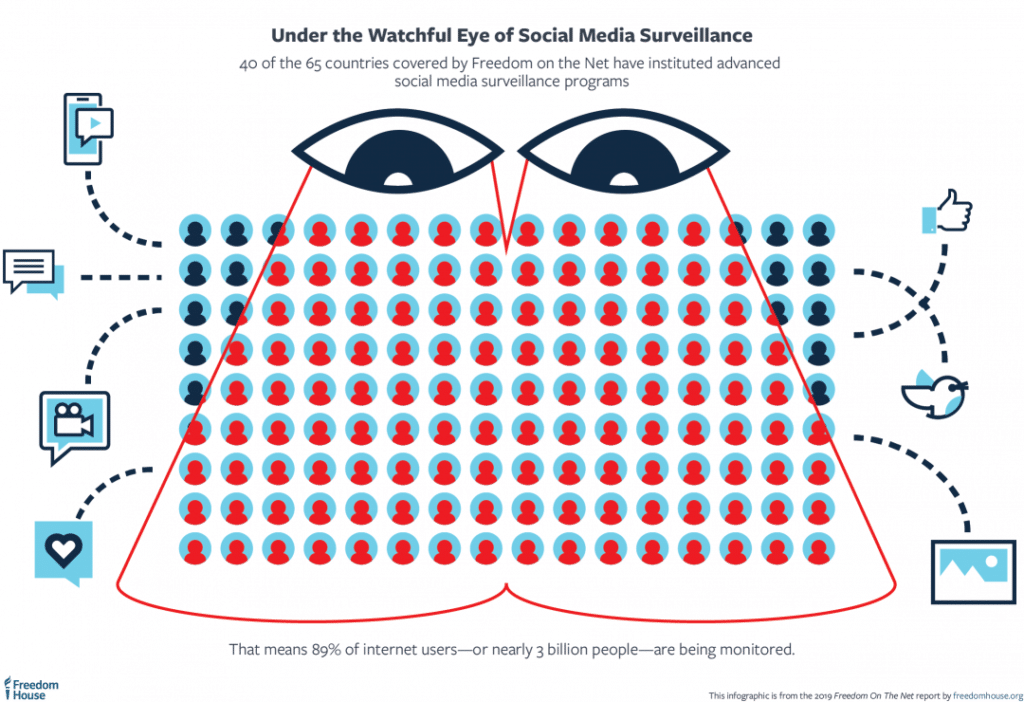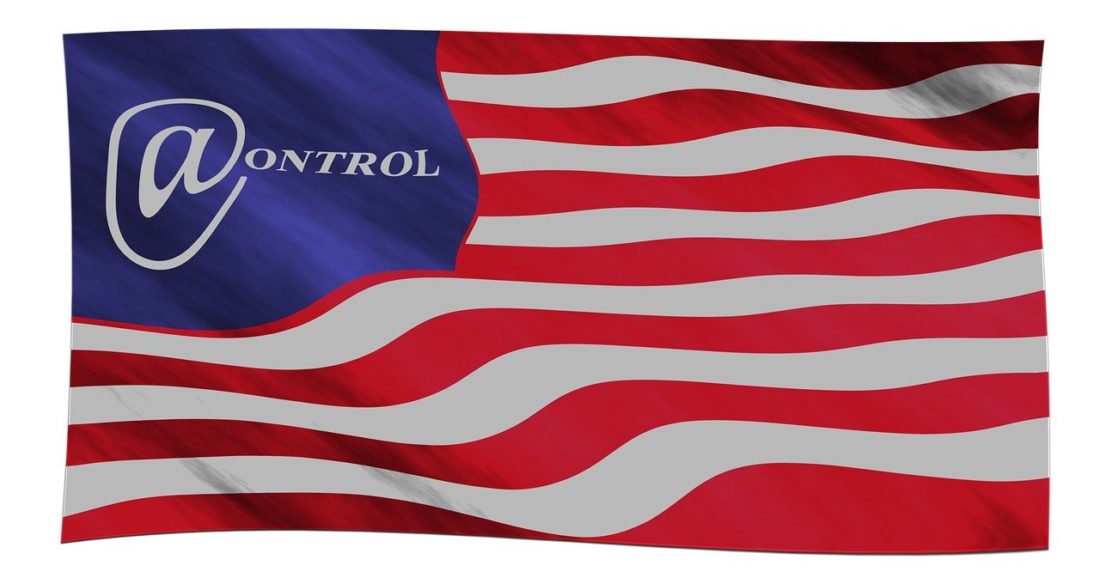Censorship reports amid the initial stages of the COVID-19 outbreak in China have been a stark reminder that freedom of speech isn’t an inherent right worldwide. An annual study shows that China is the world’s worst abuser of internet freedom for the fourth year in a row. And the biggest score declines took place in Sudan and Kazakhstan followed by Brazil, Bangladesh, and Zimbabwe.
These findings may not be a surprise. But here’s the startling news: About half of the countries studied show a decline in internet freedoms. Including the U.S.

How the U.S. Keeps Slipping Down
The study was conducted by Freedom House, which has been reporting on internet freedom throughout the world since 2009. The 2019 report includes 87% of internet users worldwide. It’s funded in part by Google and the U.S. State Department’s Bureau of Human Rights and Labor.
What’s going on in the U.S.? Internet freedom has declined for the third consecutive year. Expanded surveillance by immigration and law enforcement agencies is a key factor, “with officials increasingly monitoring social media platforms and conducting warrantless searches of travelers’ electronic devices, in some cases to glean information about constitutionally protected activities such as peaceful protests and critical reporting.”
Consolidation of the telecommunications sector and erosion of net neutrality also played roles in the U.S.’s weakening score. A proliferation “of information controlled or manipulated by the government or other powerful actors to advance a particular political interest,” especially during the 2018 midterm elections, resulted in docked points for the U.S, too. More details can be found here.
The Impact of COVID-19

And now we’re in the coronavirus pandemic era. Internet freedom will conceivably get worse, not better. Reports out of China about COVID-19 are still said to be highly censored. Trust in Hong Kong’s press freedom has fallen to its lowest level since 2002. Russia is taking steps that allow it to cut its internet off from the rest of the world. A recent Facebook AI glitch caused the platform to temporarily flag legitimate coronavirus news as banned content. And a recent U.S. court ruling decided that the First Amendment did not apply to YouTube—a private company—when the media company censored a right-wing conservative channel.
Brands need to pay attention to these shifts. Privacy laws are getting stronger. Changes in net neutrality will have far-reaching consequences. What your brand says and does online could be controlled and manipulated in different ways worldwide. How teams moderate their brands’ social media may have deeper consequences than ever.
Control is a slippery slope, after all.
Feature image by Gerd Altmann





Join the conversation